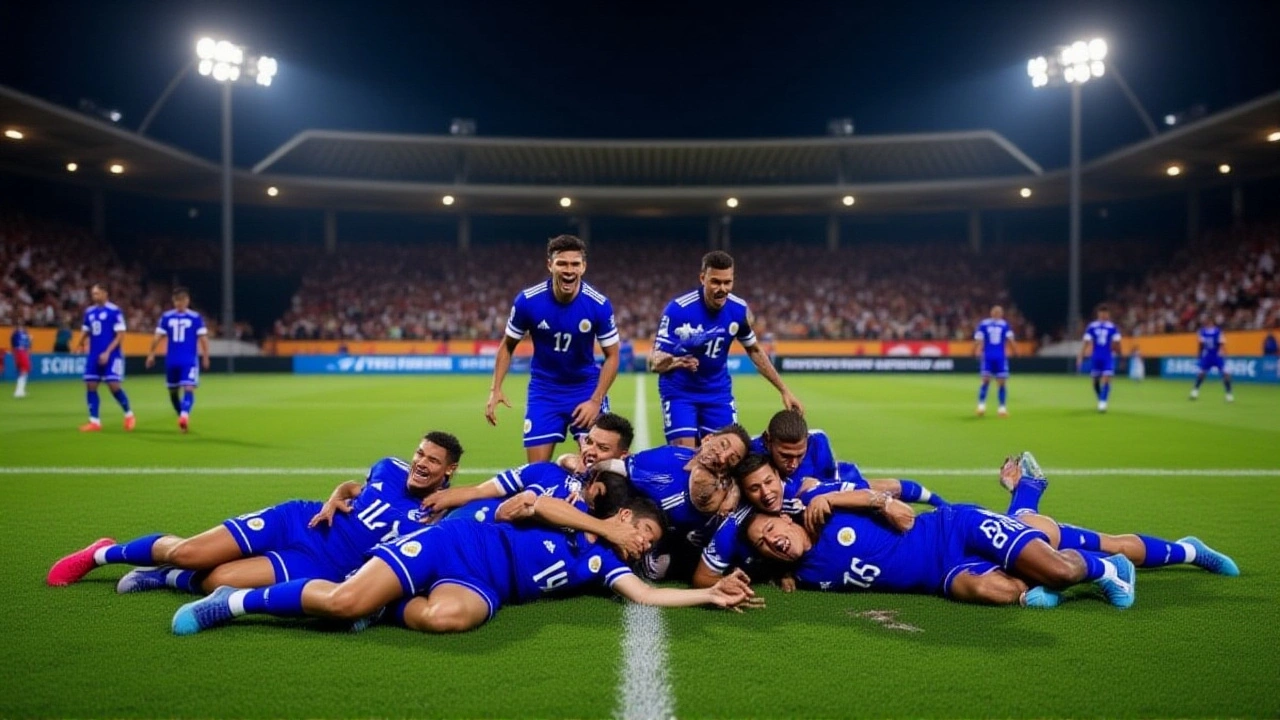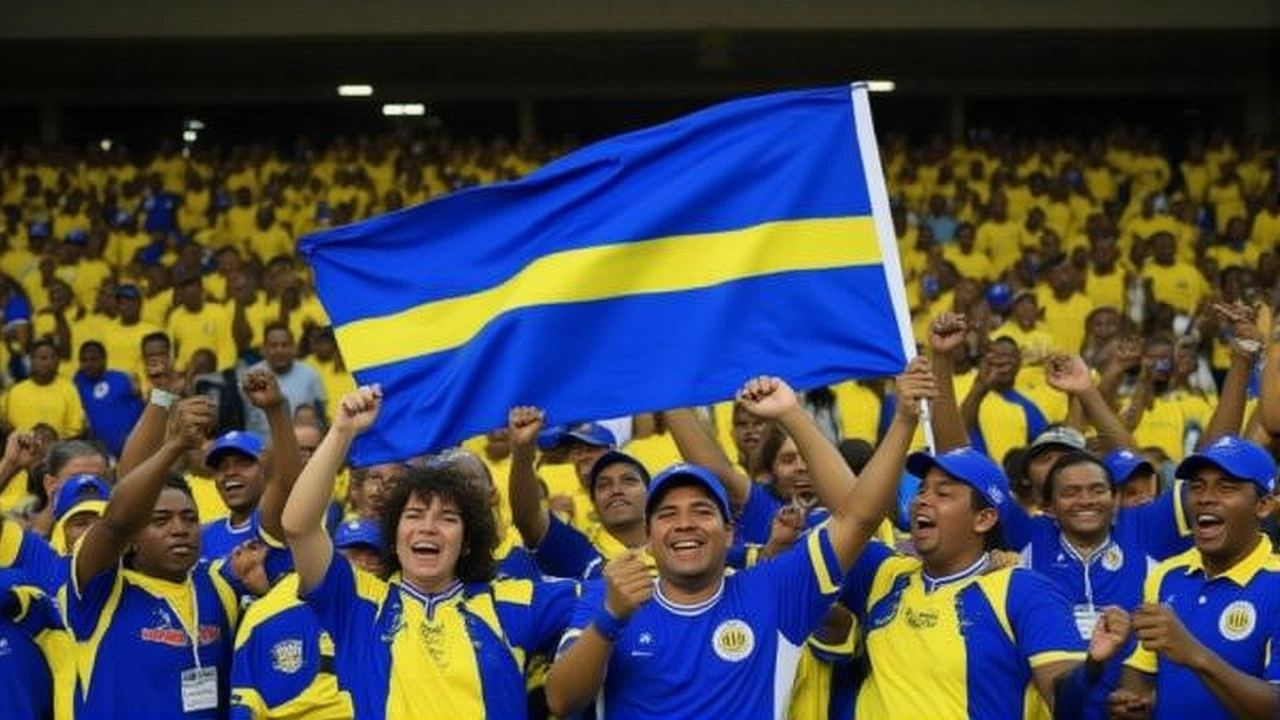On June 11, 2024, CONCACAF World Cup qualifying delivered its most unexpected outcomes in decades. Port-au-Prince erupted as Haiti beat Nicaragua 2-0, ending a 50-year wait for a World Cup return. Meanwhile, in Willemstad, Curaçao — a tiny island with just 157,663 residents — drew 0-0 with Suriname, sealing their place as the smallest nation ever to qualify for a World Cup finals. And in Panama City, Panama crushed El Salvador 3-0, locking up automatic qualification. The night wasn’t just about triumphs — it was about collapse. Honduras and Costa Rica, two regional giants, were eliminated after a goalless draw in San Pedro Sula. The old order had crumbled.
A Nation Returns After Half a Century
For Haiti, this wasn’t just qualification — it was redemption. Their last World Cup appearance was in West Germany 1974, when they were swept aside by Italy and Poland. Since then, they’ve come close — twice in 2002 and 2010 — but never made it. This time, they did. Goals from Kevin Lafrance and Sheldon Bateau in the 27th and 78th minutes silenced doubters. Fans in Port-au-Prince flooded the streets, waving flags that had been tucked away for decades. "We didn’t just play for ourselves," said captain Bateau afterward. "We played for every kid in Cité Soleil who dreams of hearing their national anthem at a World Cup." The journey was brutal. Haiti finished Group C with 11 points — one more than Trinidad and Tobago and two ahead of Costa Rica. Their 1-0 win over Costa Rica in March was the turning point. But it was the 2-0 win on June 11 that sealed it. "They didn’t have the stars," said former Haiti coach Jean-Jacques Pierre. "But they had heart. And heart beats talent when it’s backed by belief."Curaçao: The Smallest Giant
Curaçao’s qualification is the kind of story FIFA dreams of. With a population smaller than many American high schools, they’re now the smallest sovereign nation to ever reach a World Cup finals. Their path was messy. They lost their first three matches. They were held to a 1-1 draw by Suriname in April. But they kept fighting. On June 11, they didn’t need to win — just avoid defeat. And they did. A gritty 0-0 draw in Willemstad, under a sky thick with humidity and hope, was enough. They finished second in Group A with 10 points, edging out Honduras and Costa Rica on goal difference. "It’s not about size," said Curaçao captain Stefano Rijssel after the match. "It’s about pride. We’re not a big country, but we’re a football country." The island, part of the Kingdom of the Netherlands, has long punched above its weight. Their youth academies, fueled by Dutch coaching methods and local passion, have produced players for Ajax, PSV, and even Premier League clubs. Now, they’ll play on the biggest stage. "This changes everything," said Curaçao Football Federation president Winston Kock. "We’re not just a footnote anymore. We’re on the map."Panama: The Quiet Consistent Force
While Haiti and Curaçao stole headlines, Panama quietly did what they’ve done for years: show up, grind, and win when it matters. Their 3-0 win over El Salvador on June 11 was the exclamation point. But the real clincher came three days earlier — a 1-0 away win in Guatemala City. "That was the real match," said analyst Diego Palacios of ISB. "Guatemala’s crowd was insane. The pitch was a mud pit. And Panama came out with a clean sheet and a goal. That’s championship mentality." Panama finished Group A with 13 points, behind only the United States and Mexico — both of whom qualified automatically. But Panama’s consistency, led by veteran striker Blas Pérez and midfield anchor Aníbal Godoy, made them the most reliable team in the group. "We knew we had to be smart," said head coach Edwin Palacios. "We didn’t need to be the flashiest. We just needed to be the last team standing."
Suriname: The One Goal That Changed Everything
The most dramatic subplot? Suriname. They didn’t qualify automatically. But they didn’t go home either. Thanks to a 92nd-minute goal against Trinidad and Tobago on June 6 in Port of Spain, they stayed alive. The goal — scored by Kevin Kekes — was widely dismissed as a consolation. It wasn’t. That single goal gave Suriname a 1-1 draw, which, combined with Curaçao’s 0-0 draw, was enough to push them into the inter-confederation playoff. The final match against Curaçao ended in controversy. In the 89th minute, Suriname’s Wesley Sneijder Jr. went down in the box after a tug from defender Chadwick Jansen. The referee waved play on. Replays showed contact — but not enough for a penalty. "That was the real match where things got didn’t didn’t happen," said ISB analysts. "But we’ve seen it before. In football, sometimes the most meaningless goal is the most important." Now, Suriname heads to the inter-confederation playoff in Mexico City in March 2026. They’ll face teams from Asia, Africa, or Oceania for one of two final World Cup spots. "We’re not done," said Suriname coach Marcel van der Sloot. "We’ve already defied expectations. Now we’ll go to Mexico and make more history."What This Means for CONCACAF
The elimination of Honduras and Costa Rica isn’t just a fluke — it’s a sign of change. For years, CONCACAF’s World Cup spots were a three-horse race: USA, Mexico, and whoever else could sneak in — usually Costa Rica or Honduras. Now? That’s over. Jamaica, Haiti, Curaçao, Suriname — they’re all in the mix. The gap between the top and bottom is shrinking. Youth development is spreading. And the passion? It’s everywhere. "This is the future," said former USMNT coach Bruce Arena. "It’s not about who’s got the biggest budget. It’s about who’s got the most heart. And right now, that’s in the Caribbean."
What’s Next?
Haiti will be in Group A of the 2026 World Cup, alongside the United States, Spain, and a yet-to-be-determined team. Curaçao will face a tough draw — likely against a European powerhouse. Panama, as a top-three finisher, will be seeded. And Suriname? They’ll play in Mexico City in March 2026, hoping to join the 48-team tournament. The road ahead is long. But for the first time in decades, the World Cup feels wider. More open. More real.Frequently Asked Questions
How did Haiti qualify after 50 years without a World Cup appearance?
Haiti finished second in CONCACAF Group C with 11 points, thanks to a 2-0 win over Nicaragua on June 11, 2024, and a crucial 1-0 victory over Costa Rica in March. They edged out Trinidad and Tobago on goal difference, becoming the first Caribbean team outside of Jamaica to qualify since 2006. Their last World Cup was West Germany 1974.
Why is Curaçao’s qualification historic?
Curaçao, with a population of just 157,663, is the smallest sovereign nation ever to qualify for a World Cup finals. Previously, the record was held by Iceland (340,000) in 2018. As a constituent country of the Netherlands, Curaçao’s success reflects deep investment in youth football and local talent development, despite limited resources.
What role did Suriname’s goal against Trinidad and Tobago play?
Suriname’s 92nd-minute goal in their 1-1 draw with Trinidad and Tobago on June 6, 2024, gave them a vital point that ultimately kept them above Honduras and Costa Rica in the standings. Without that goal, Suriname would have been eliminated. ISB analysts called it the "most important meaningless goal" in CONCACAF history.
Why were Honduras and Costa Rica eliminated despite being traditional powerhouses?
Honduras and Costa Rica both finished with 9 points in Group A, tied on points but behind Panama, Haiti, and Curaçao on goal difference. Their 0-0 draw on June 11 sealed their fate — a result that mirrored their inconsistent performances throughout qualifying. Both teams struggled defensively and failed to win away from home.
Where and when is Suriname’s playoff match?
Suriname will compete in the inter-confederation playoff in Mexico City in March 2026. They will face a team from Asia, Africa, or Oceania for one of two final spots in the 2026 World Cup. The exact opponent and date are yet to be determined by FIFA.
What does this mean for future CONCACAF qualifying?
The rise of Haiti, Curaçao, and Suriname signals a new era. Smaller nations are closing the gap through better coaching, diaspora investment, and tactical innovation. Expect more upsets in future qualifiers. The days of automatic qualification for only the USA, Mexico, and Costa Rica are over — the Caribbean is now a legitimate force.
